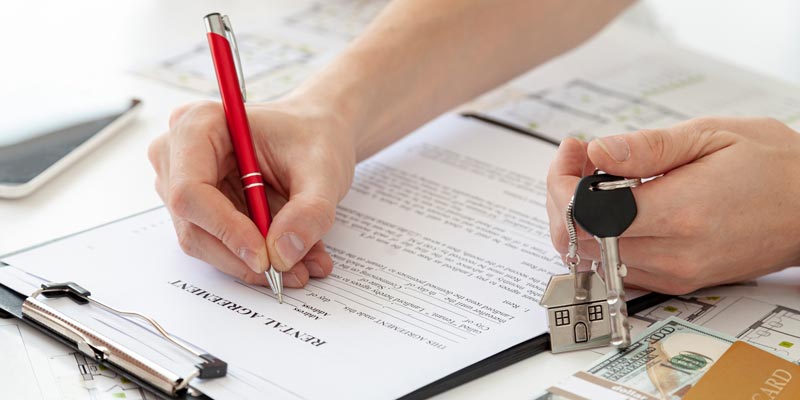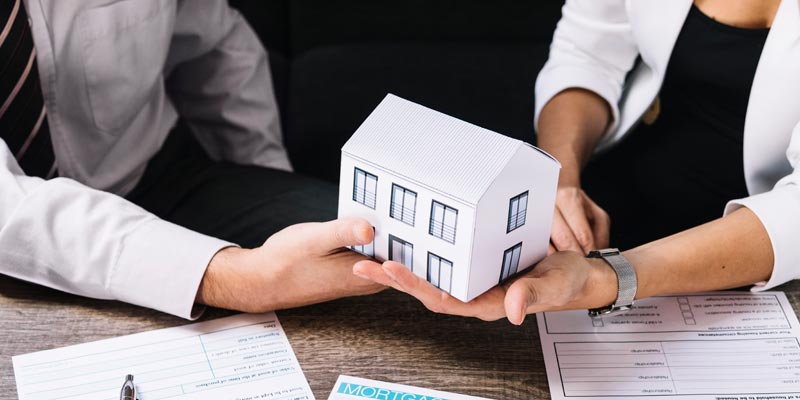When it comes to real estate, doing business truthfully and building trust is necessary for any deal and maintaining loyal clients. Regardless of whether the property is residential or for business, buying involves many tough choices. A trusting environment is created as much by the people involved and their actions as by the features or area involved. This blog explains how transparency, ethical actions and good communication at all times help real estate professionals and developers gain the trust of their customers and seeks to explore how to build trust in property buying and the workable principle of transparency in real estate transactions for property purchase.
Value of Trust in the Real Estate Industry
Real estate transactions tend to be some of the biggest monetary investments that anybody is likely to make in a lifetime, so it is crucial to know how to build trust in property buying. Since so many important facets are at play, such as monetary security, time commitment, and future stability, buyers require clear confirmation and reliability of the whole process. Because of the many reports of fraud and deception and secret fine print in the real estate market, building confidence and developing transparency in real estate transactions among property buyers is crucial for everyone who is involved. For buyers, the acquisition is more than just a home or an investment property, they’re buying peace of mind. In a sense, trust is the avenue at the base of uncertainty where buyers will feel that they can proceed with a purchase with confidence.

Why Trust Matters in Real Estate
It’s not just the purchase of an asset, but it is more of an investment, and that comes with the so-called ‘emotional capital.’ Whether the purchasers are families who are choosing a house for their future or businessmen who are investing in real estate, there is always a demand for risk minimization. Unfortunately, the real estate sector has always been marred by several vices that have seen the sector being considered a zone of trust; vices include hidden charges, false promises, legal battles, and a lack of documents. Hence, rebuilding and maintaining buyer trust is something that has to be achieved collectively by developers, agents, and regulatory agencies.Trust is the bridge that converts a prospect into a buyer. It comes from keeping to the right ethical standards in doing business, maintaining transparency in real estate transactions, and dealing with customers sincerely in order to be efficient with how to build trust in property buying among their buyers.
How to Build Trust in Property Buying
Building trust is not an overnight process. It requires a multi-layered strategy involving ethical conduct, strong communication, and clear documentation. Here’s how real estate professionals and developers can build and maintain buyer trust:
1. Open and Honest Communication:
Buyers should never feel like they’re being “sold to.” Instead, real estate professionals must adopt a consultative approach, guiding buyers with accurate information about the property, pricing, legal clearances, timelines, and potential risks. Avoid jargon and fine print that mislead; instead, be upfront about what buyers can expect.
2. Provide Complete Documentation:
Documentation is the backbone of property verification. Providing buyers with clear and complete paperwork—including title deeds, sale agreements, layout approvals, and encumbrance certificates—is a crucial step. When all legal and regulatory documentation is readily available, it strengthens the buyer’s confidence in the transaction. Thus, transparency in real estate transactions is a significant part of building trust among buyers.

3. Encourage Site Visits and Independent Verification:
Buyers should be encouraged to visit properties, interact with residents (if it’s a resale property or ongoing project), and verify details independently. Transparency in access shows there is nothing to hide and that the project or property can withstand scrutiny.
4. Be Consistent and Reliable:
Consistency in communication, meeting promised deadlines, and following through on commitments builds long-term credibility. Real estate agents and developers who deliver on promises—even small ones—establish a trustworthy reputation.
5. Use Technology to Build Transparency:
Use digital platforms, including blockchain, for the registration of property, projects, electronic contracts, and updated milestone management of projects. These digital progressions increase responsibility across the board and provide permanent records that assist purchasers and vendors alike. Create simple interfaces for buyers to track when they need to pay, building status, and availability of necessary documents. If you make these small changes, you can considerably improve the transparency of your process.
6. Share Testimonials and Case Studies:
Ask for testimonials from happy clients who have worked with you. Providing validated testimonials and open case studies proves your credibility and puts the new buyers at ease, as you can be trusted. For instance, revealing the methods you used to manage problems during previous transactions makes you transparent and effective in resolving issues.
7. Partner with Trusted Professionals:
Form a team of confidants consisting of legal advisors, architects of the place, valuers, and financial consultants whose stability has been tested. Selling guidance from verified professionals gives buyers a chance to make informed choices and protects their interests from beginning to end. By signing up with trustworthy experts, you show that you care about the welfare of your buyer.
Common Pitfalls to Avoid
Aid only conscientious efforts cannot always stop practices that may harm trust.
- Withholding information: If you withhold such important updates like unresolved legal challenges or construction delays, then this also can mar your reputation in the end.
- Overpromising – Be sure you only agree to do what you can be sure of delivering – either financial returns or completion dates for a project.
- Preferring vague phrasing: In communicating with clients, use concrete evidence or specific examples to render terms such as “up-and-coming area” or “potentially lucrative”.

Conclusion: Trust Is the New Currency
In this rapidly changing real estate part of the world, the value of trust, transparency far exceeds being ethical—it is vital for future business prosperity. And an important asset in terms of how to build trust in property buying is to maintain transparency in real estate transactions. Prospective buyers are becoming more knowledgeable and take their time before buying, and they look out for sellers and agents respectful of their intelligence and those who are willing to safeguard their interests.
When you play the role of a real estate professional, you shine if you focus on developing meaningful relationships instead of just trying to make sales. Communicate openly, make it consistent that you are honest, and always put money revolving around openness and to make this task easier for you, consult the best real estate consultant in Bangalore. Although trust cannot be built up quickly, once earned, it can constitute an excellent base for experience in real estate.








Add comment